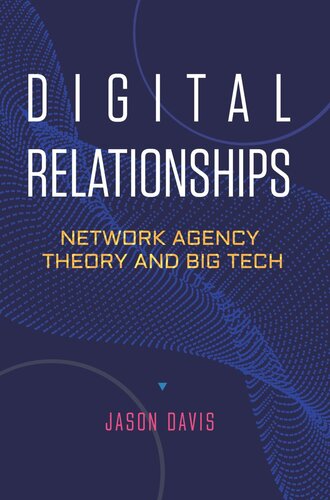

Most ebook files are in PDF format, so you can easily read them using various software such as Foxit Reader or directly on the Google Chrome browser.
Some ebook files are released by publishers in other formats such as .awz, .mobi, .epub, .fb2, etc. You may need to install specific software to read these formats on mobile/PC, such as Calibre.
Please read the tutorial at this link: https://ebookbell.com/faq
We offer FREE conversion to the popular formats you request; however, this may take some time. Therefore, right after payment, please email us, and we will try to provide the service as quickly as possible.
For some exceptional file formats or broken links (if any), please refrain from opening any disputes. Instead, email us first, and we will try to assist within a maximum of 6 hours.
EbookBell Team

4.3
48 reviewsWhy do so many organizations fail to mobilize the social networks of employees to respond to disruptions, innovate, and change? In Digital Relationships, Jason Davis argues that individual and organizational interests about networking can come out of alignment such that the network ties that individuals form are organizationally sub-optimal for achieving their most ambitious goals. Developing a new perspective about networks and organizations, he explains through network agency theory how network problems emerge, the role of digital technology adoption by organizations in amplifying misalignment, and the capacity of managers and function of the executive to resolve agency problems and mitigate their impact. Drawing on over a decade of qualitative research in US, Asian, and European "big tech" companies and new analytical and computational modeling, this book offers new interpretations and solutions to the pathologies that emerge from organizationally detrimental networking behaviors and in the face of managerial interventions.